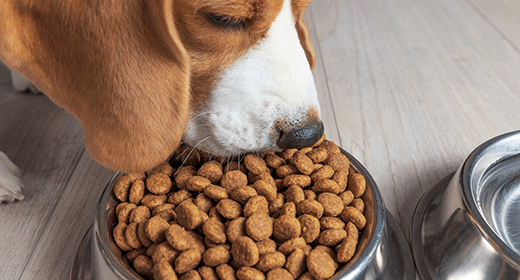

Your puppy’s nutritional needs will change as he grows into adulthood, but how do you know when your puppy is ready for adult food?
Depending on his breed size, at some point between 12 and 24 months of age, you should reexamine your puppy's nutritional needs and choose the right adult formula. His adult food could depend upon his metabolism (Does he gain weight easily?) and his activity level (Is it low, normal, or high?) These factors can help you find the ideal food for your dog.
The transition to a premium adult formula should begin when your dog approaches adult height and weight. The kind of dog you have will determine the right time to switch. When you do switch to adult formula, follow the same four-day process as you did when introducing your puppy to premium puppy food.
Small-breed dogs tend to mature physically much sooner than large-breed dogs. Follow these guidelines to help you decide when to switch formulas:
As your new puppy quickly matures into adulthood, he needs nutrition appropriate for his 'new' body. That means a high-quality, premium adult formula. Most veterinarians agree that feeding a complete and balanced premium food, such as IAMS™ ProActive Health™ Adult MiniChunks, throughout your dog's adulthood can promote a long and healthy life.


Puppies grow quickly and have special nutritional needs to keep their bodies strong. The most noticeable time is known as the rapid growth stage, which occurs between 2 and 6 months of age. From about 3 to 6 months, most pups will lose their puppy teeth (you might find a tooth near his dish or on the floor; this is normal).
During this phase, his mouth and gums may be very sensitive, which could cause him to be a bit picky when it comes to eating. There's nothing you can do except to wait it out, even if his appetite is low for a couple of days.
Helpful Hints
Don't switch to a new formula to stimulate your puppy's appetite. Changing food at this time can cause additional stress and intestinal upset. The tips below could help your puppy make the change: